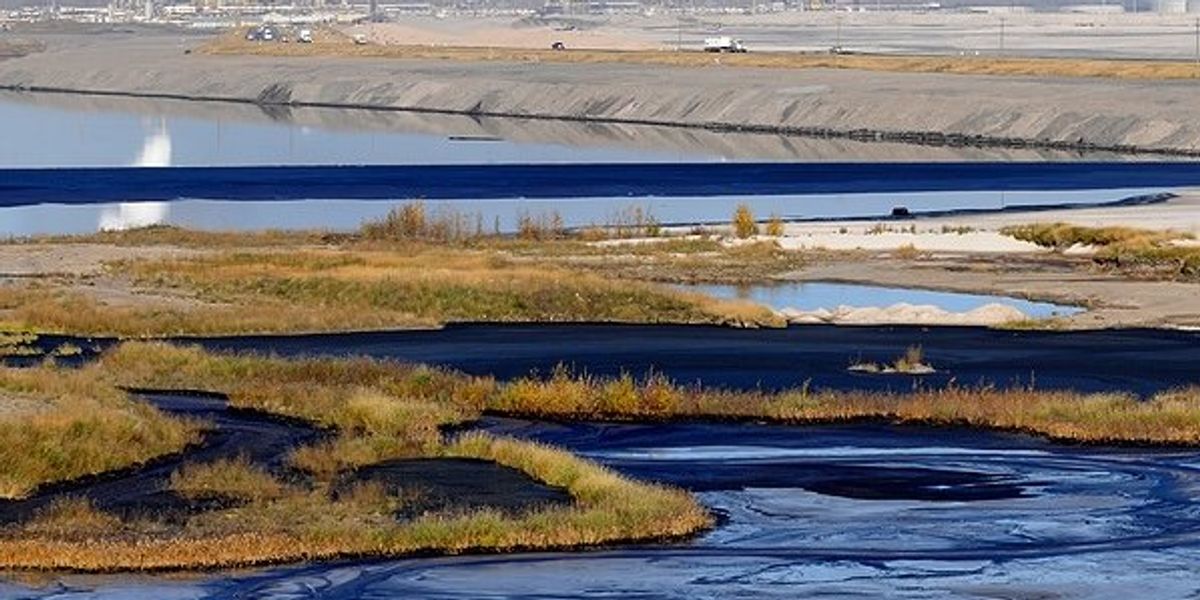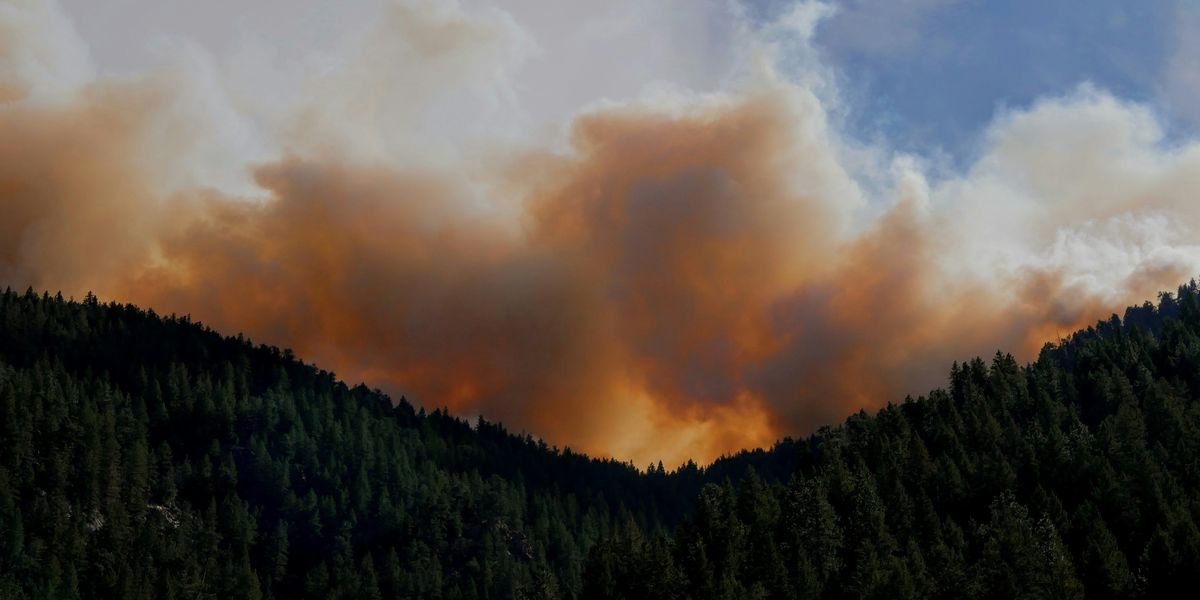asthma
California: Signal Hill employs firm with oil industry ties for drilling permit review
Residents of Signal Hill are opposing a proposal to extend a neighborhood oil drilling permit for 20 years, citing health risks and environmental concerns.
In short:
- Community members expressed concerns about health impacts, such as asthma and cancer, linked to local oil drilling operations.
- Signal Hill Petroleum seeks to extend its drilling operations, relying on an environmental review by a firm connected to the oil industry.
- California's Senate Bill 1137, if upheld, would restrict new wells and impose tighter regulations on existing ones near residential areas.
Key quote:
"The International Panel on Climate Change has stated that we must urgently ramp down fossil fuel production in order to avoid the most extreme effects of climate change. A proposed 20-year permit extension does the opposite."
— Catherine Ronan, Sierra Club’s Los Angeles chapter
Why this matters:
Extending oil drilling operations in residential areas poses significant health risks to the community, including respiratory and cardiovascular diseases. The decision also challenges California's efforts to reduce fossil fuel dependence and mitigate climate change.
Long-term health impacts of early smoke exposure explored through primate study
A primate research center in California provides insights into the lifelong health consequences of early exposure to wildfire smoke.
In short:
- In 2008, wildfire smoke from Northern California engulfed the California National Primate Research Center, affecting newborn monkeys.
- These monkeys displayed weaker immune responses initially, but as they aged, they developed more aggressive immune systems and sustained lung damage.
- The study, unique due to its control conditions, suggests potential long-term health risks for humans from early smoke exposure.
Key quote:
“It’s this first year of life, this really early window of development for humans that is so critical for imprinting long-term health. If you can control the environment during this window of time, you might set the stage for a longer, healthier life in the future.”
— Lisa Miller, associate director of research, California National Primate Research Center.
Why this matters:
Understanding the long-term health impacts of wildfire smoke on young primates offers crucial insights into similar risks in humans, potentially influencing public health strategies and environmental policies. Read more: Carlos Gould on wildfire smoke and our health.
Kari Nadeau: Climate change is driving an epidemic of immune health problems
Industrial plant emissions linked to health hazards, study reveals
A recent study highlights the severe health and economic impacts of flaring and venting at industrial plants, including premature deaths and exacerbated asthma cases.
In short:
- Flaring and venting activities at industrial plants are causing significant health issues, including asthma exacerbations in children and about 710 premature deaths annually.
- The study, involving researchers from Boston University and others, found that these practices cost the U.S. approximately $7.4 billion each year in health damages.
- Texas, Pennsylvania, and Colorado are the top states affected by these emissions, impacting nearly half a million Americans living close to oil and gas facilities.
Key quote:
“We know that PM 2.5 is bad for health, we know that ozone is bad for health, but to see the amount of asthma exacerbations that were attributed to nitrogen dioxide, I think that was surprising to us.”
— Erin Polka, a doctoral student in the Department of Environmental Health at Boston University’s School of Public Health
Why this matters:
Industrial plant emissions are a significant concern for both environmental health and public well-being, contributing to a range of issues that affect ecosystems, air quality, and human health. In 2020, researchers linked air pollution from burning off excess natural gas to preterm births for babies, with the most pronounced impacts among Hispanic families.
The switch to electric vehicles is a breath of fresh air for children near highways
A new study highlights the potential for electric vehicles (EVs) to significantly reduce childhood asthma attacks and other health issues caused by exhaust exposure, particularly in low-income, urban areas.
In short:
- Transitioning to EVs could prevent nearly 3 million childhood asthma attacks and hundreds of infant deaths due to lower air pollution.
- 27 million children in the U.S. are currently exposed to high levels of air pollution, which begins affecting them as early as in the womb.
- Bipartisan efforts and state initiatives, especially in California, are accelerating the adoption of zero-emission vehicles, with significant advancements in truck emissions reduction.
Key quote:
"Children are smaller, they’re breathing more air pound for pound than an adult. The risk can be immediate, but it’s also long lasting."
— William Barret, study author and national director on advocacy and clean air at the American Lung Association.
Why this matters:
The transition to electric vehicles, crucial in the fight against climate change, represents a significant stride towards mitigating health disparities in urban communities and advancing environmental justice. Read more in "Breathless" is EHN's in-depth look at Pittsburgh's asthma epidemic and the fight to stop it.
Supreme Court leans towards limiting air pollution regulations
The Supreme Court's conservative majority is likely to restrict the Biden administration's environmental efforts, specifically the U.S. Environmental Protection Agency's plan to reduce cross-state air pollution, impacting public health and environmental policies.
In short:
- The "good neighbor" plan aimed to cut ozone pollution affecting downwind states is under threat, with a decision expected by June.
- This follows a trend of the court limiting the EPA's authority on environmental issues, including climate change and water pollution.
- The plan's suspension could delay pollution control efforts, affecting states reliant on upwind pollution reduction.
Key quote:
“It would delay efforts to control pollution that contributes to unhealthy air in downwind states, which is contrary to Congress’s express directive that sources in upwind states must assume responsibility for their contributions to emissions levels in downwind states.”
— EPA legal brief.
Why this matters:
The potential blocking of the EPA's air pollution plan brings to light the struggle and intricate balance between federal authority and state responsibilities in managing air quality. Learn more about air quality and respiratory health from Kristina Marusic's reporting in our series: Breathless.
Lockdowns lead to a significant drop in asthma emergencies due to cleaner air
A study from Oxford reveals a notable decrease in asthma-related hospital admissions in 2020, linking it to the reduction of air pollution amid COVID-19 lockdowns.
In short:
- Emergency admissions for asthma in Oxford fell by 41% in 2020, as air quality improved with fewer vehicles on the road.
- The study correlates peaks in asthma admissions with air pollution levels, pointing to a direct link between air quality and asthma exacerbations.
- Testimonies from individuals with asthma documented personal improvements in lung function during lockdown periods.
Key quote:
“The Covid-19 pandemic led to a unique opportunity where we could study the impacts of rapid changes in human activities on air quality.”
— Dr. Suzanne Bartington, lead researcher, University of Birmingham
Why this matters:
This finding emphasizes the direct impact of air quality on health, particularly for those with respiratory conditions like asthma. It supports the need for cleaner air policies, not only for environmental reasons but as an important public health measure.



















